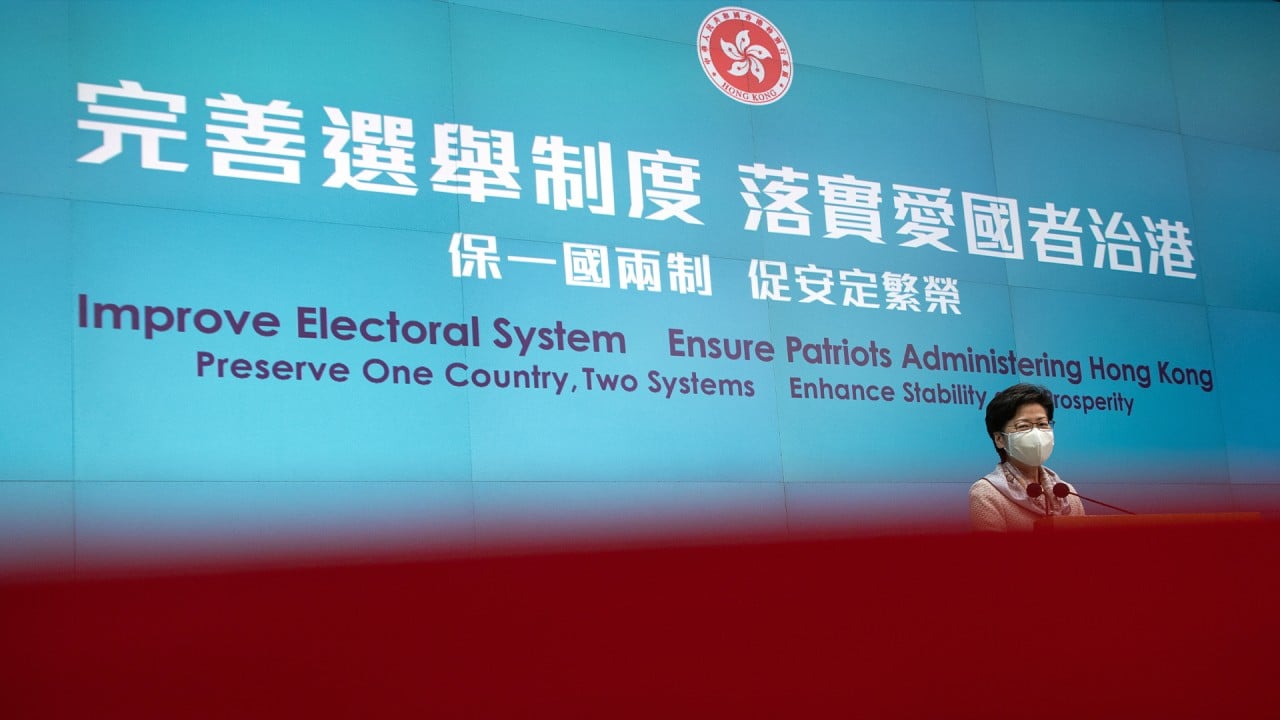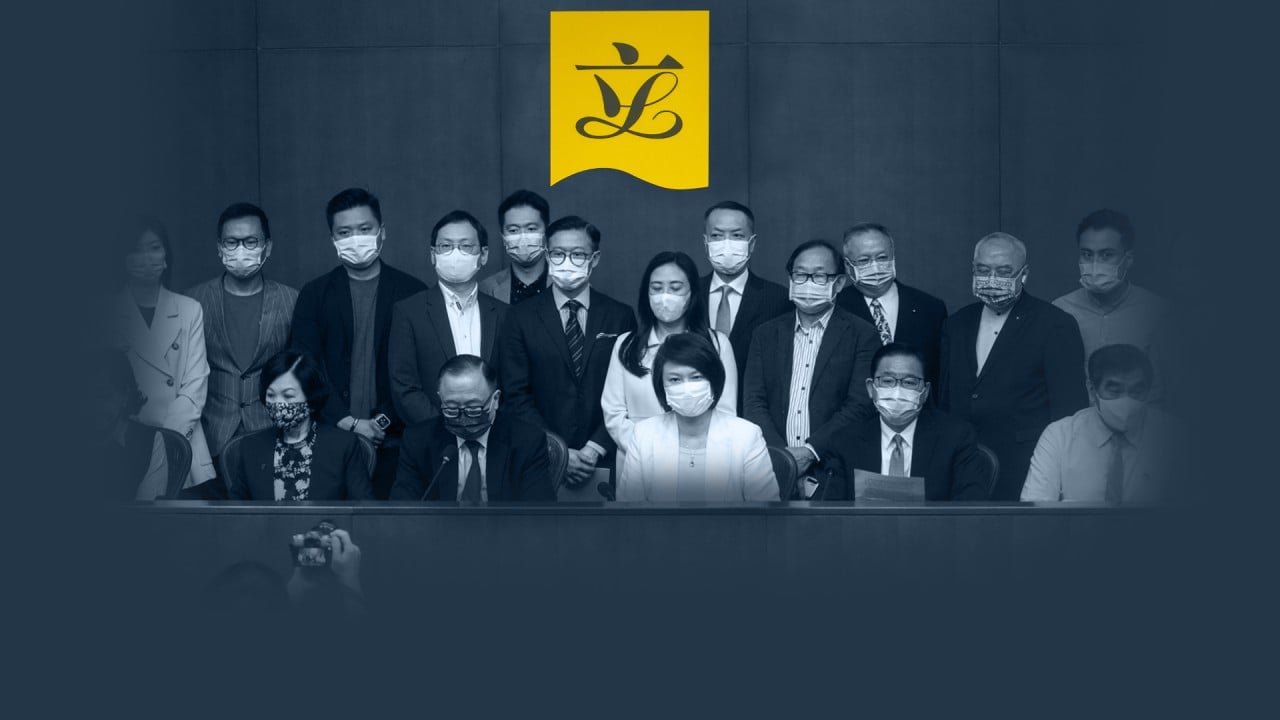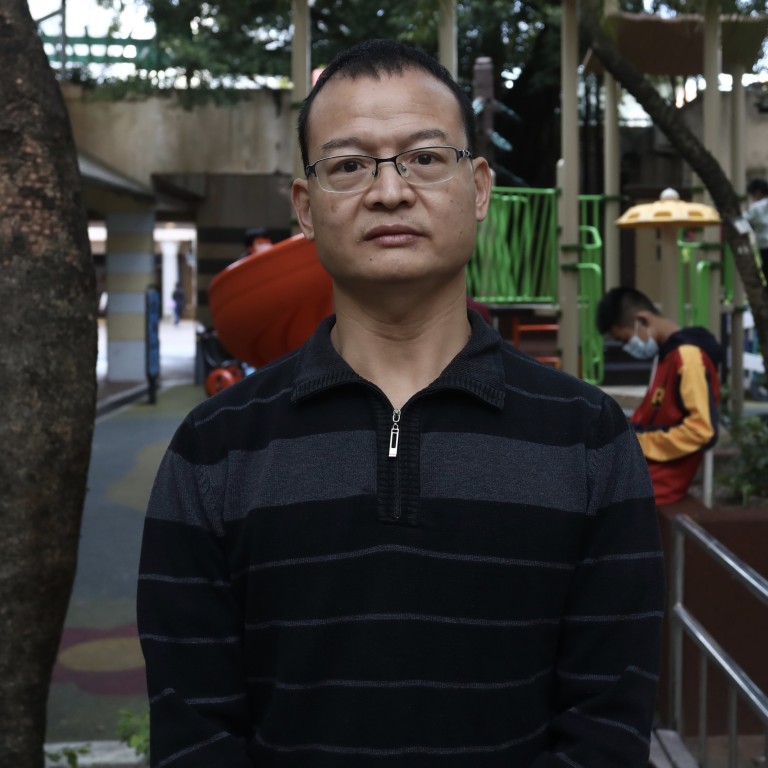
Meet the electrician who wants to be a Hong Kong lawmaker. Can he power through in the coming Legislative Council election?
- Vincent Diu, an electrician without political party links, is not typical of the 51 candidates running for a new 40-seat Legco constituency
- Election Committee candidates in the first legislature poll since Beijing’s electoral overhaul are treading new ground in terms of key issues and campaigning methods
The 48-year-old is among the 51 candidates vying for the Election Committee constituency. Unlike the majority who are linked to political parties and professional associations, Diu is a union member but hardly part of the establishment elite.
A father of a boy and a girl, he used to be a clerk and tour guide. However, since 2014 he has specialised in electrical work on residential construction sites.
Who will Hong Kong’s first Election Committee lawmakers represent?
Diu said that over the past two years he found himself feeling troubled reading all the “bad” news about the economy, unemployment and the housing shortage in the city.
The more he read, Diu said, the more he felt he had to do something to speak up about the plight of “frontline workers” like himself.
“I hope to help Legco to solve these problems,” he told the Post.
The Election Committee constituency is part of the electoral overhaul imposed by Beijing in March this year and the December poll will be the first under the new system with this maiden batch of legislators elected by the powerful committee of 1,448 members.
Among the 51 candidates contesting the constituency, nine are former lawmakers seeking re-election, while the others include party members, university professors, lawyers, think tank leaders, veteran businesspeople, retired officials, unionists, as well as a priest and a bus driver.
The candidates must secure the votes of the 1,448 Election Committee members, who are divided into 40 commercial, professional, social and political groupings. Members will each pick 40 candidates in a block vote on December 19.
As it is a new constituency, candidates have been treading new ground, both in the issues to canvass support for and the methods of campaigning.
On Friday, they appeared in a marathon four-hour forum, split into groups of four to speak on a chosen topic, ranging from national security and economic diversification to patriotic education, youth mobility and mainland China integration.
As an unknown candidate with no profile until last week, Diu ironically has stood out because of his background.
A native of Guangdong who moved to Hong Kong in 1987, Diu is a member of the Hong Kong and Kowloon Electrical Engineering and Appliances Trade Workers Union. He started off by taking courses organised by the group, and later became a member of its governing body.
“Some Election Committee members said they appreciated me for my courage … I hope my sincerity can win them over,” he said, adding that his election campaign had proven to be much harder than expected.
Who are Hong Kong’s new political elites, and will they displace pro-Beijing veterans?
He and other candidates, along with several of the constituency’s powerful voters interviewed, said that hopefuls from political parties had an edge because of brand recognition.
It came as no surprise therefore that some candidates, such as Judy Chan Ka-pui, 41, were displaying posters of themselves standing next to their better-known party leaders.
Chan, of the New People’s Party, had campaign materials showing her shoulder to shoulder with her chairwoman and Executive Council member Regina Ip Lau Suk-yee, who is seeking re-election in the Hong Kong Island West geographical constituency.
But other candidates felt those without party platforms or leaders to align themselves with could still make a difference if they were well-known and charismatic. They could even win at the expense of more famous legislators if they were visionary in offering policy solutions, they said.
The campaigning methods had also been different, several noted. Instead of meeting the public in street booths or holding a dialogue with a specific group of constituents, candidates have to canvass votes by attending dozens of electoral meetings – either by initiating them or attending those organised by various sectors.
Diu said since nominations closed two weeks ago, he had made dozens of phone calls and asked his labour union friends for help in meeting the 1,448 Election Committee members. But he only managed to attend about 10 electoral meetings, including four forums organised by pro-establishment groups to connect with about 50 to 60 voters.
“It’s difficult. I asked my friends in the electrical workers union to help … and Reverend Canon Peter Koon Ho-ming also helped me,” he revealed, referring to the provincial secretary general of the Hong Kong Anglican Church.
Only 3 Hong Kong Legco candidates identify as ‘pro democracy’
Koon, 56, said he also found it hard for non-affiliated candidates to lobby for support. “It is challenging as there is no centralised coordination. Two groups could be hosting election forums separately on the same morning and you could only attend one,” the 56-year-old said.
But Koon conceded he had an advantage as he was well-known, and the only representative from the religious sector. If elected, he will be the first priest in Legco since Anglican clergyman Fung Chi-wood completed his four-year stint in 1995.
Koon said that to meet more voters he had joined the Democratic Alliance for the Betterment and Progress of Hong Kong’s (DAB) six candidates in attending electoral gatherings.
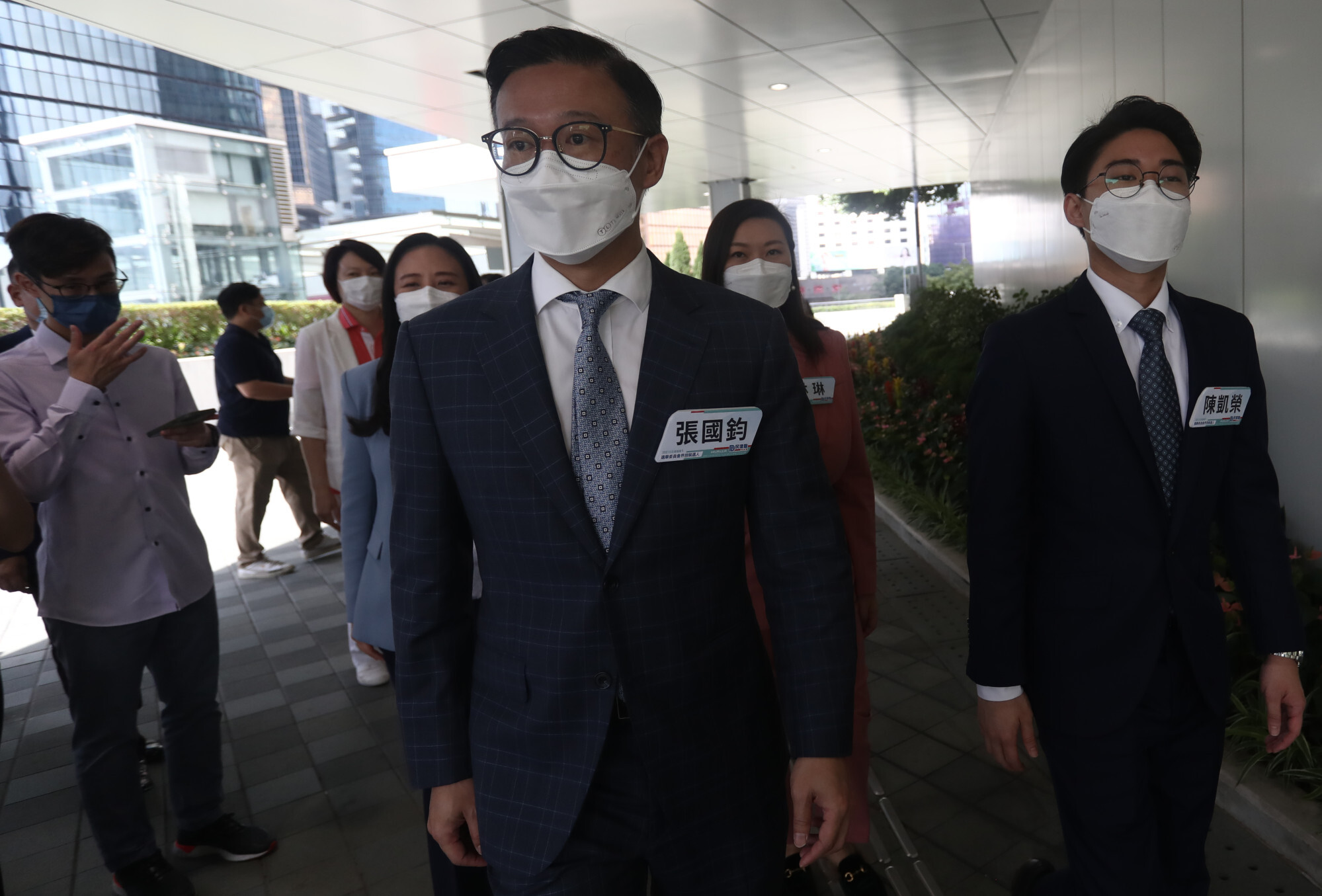
DAB candidate Horace Cheung Kwok-kwan, 47, who used to be a Hong Kong Island lawmaker and was now seeking a seat in the new constituency, said the election was no longer a “zero-sum game”.
“Each committee member will choose 40 lawmakers, so apart from the six DAB hopefuls, they can choose 34 more,” he said.
Cheung dismissed suggestions that Beijing had a list of 40 recommended candidates for the Election Committee members to vote for.
Agreeing with Cheung, Federation of Trade Unions’ Alice Mak Mei-kuen, 51, who is also contesting in the Election Committee constituency, quipped: “If there were such a list, I wouldn’t need to campaign so hard.”

Mak said the new rules would make Election Committee voters think harder about diversity and after attending meetings with them, she felt their focus was on choosing a team of 40 that could produce results in Legco.
“We try to win them over by promising to do just that,” she said. “The Election Committee’s five sectors all work for Hong Kong’s interest; we can be accountable by working for the city’s good.”
But she added: “There is no sure-win in this poll, so I won’t underestimate the risks.”
Fellow candidate for the same constituency, Gary Wong Chi-him, 38, an ex-member of moderate think tank Path of Democracy, said policy knowledge was more important than political affiliation.
“In the 2016 election, our debates were superficial and focused on political issues. This time, the meetings with voters are often in-depth policy discussions on a range of topics,” he recalled.
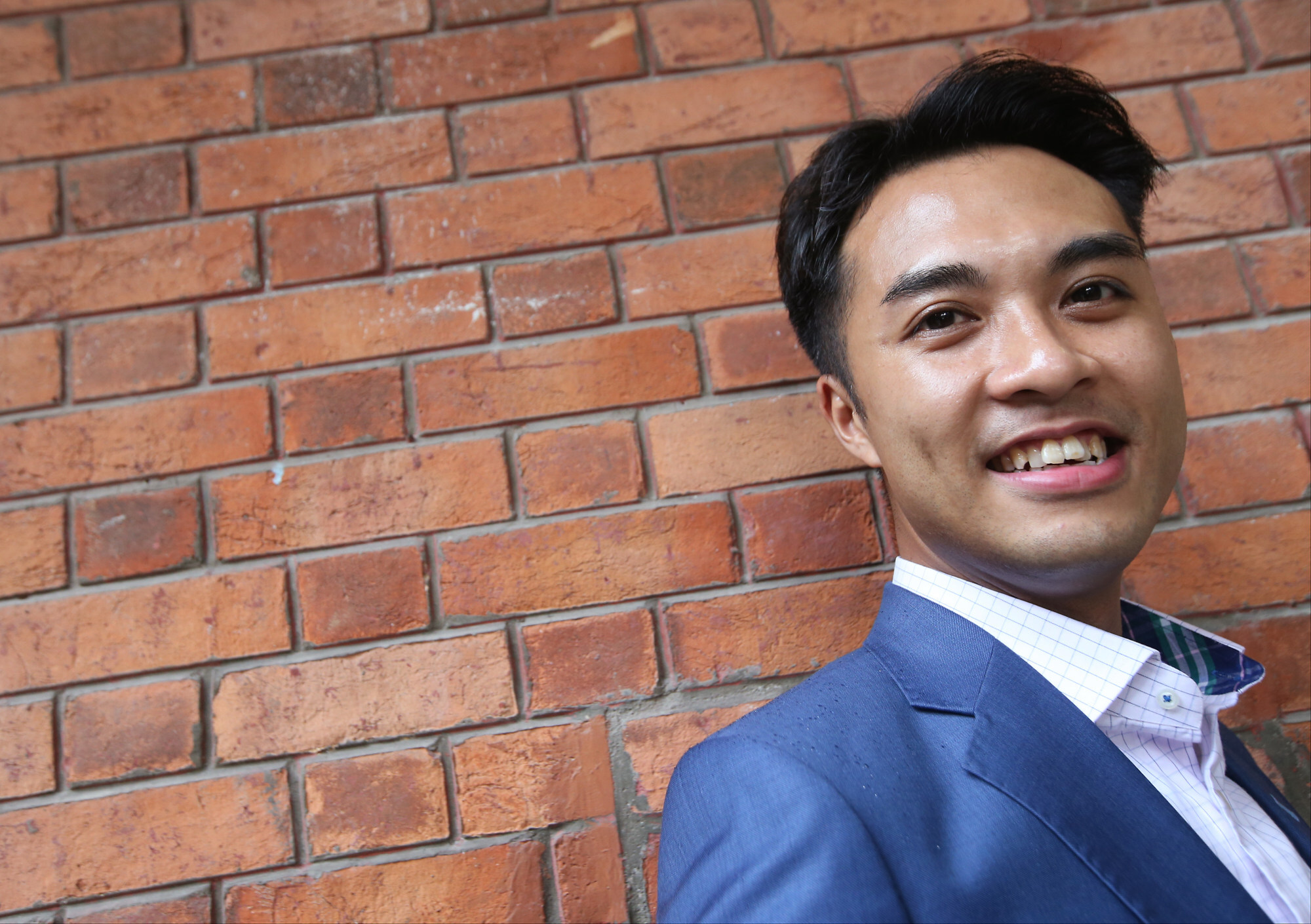
Koon, who is also eligible to vote as an Election Committee member, said he believed that electors wanted to make sure that Legco had enough diversity in lawmakers’ social backgrounds.
“The committee needs to ensure balanced participation and unity,” he said.
Election Committee member, former veteran legislator Ip Kwok-him, 70, said it was capability and commitment that mattered.
“We don’t just need nice and detailed manifestos. We’ll pick candidates who stand out, and have a heart for the job,” he said.
Hong Kong poll set to have competition for all directly elected seats
But another Election Committee member Herman Hu Shao-ming, 67, a Hong Kong deputy to China’s legislature, the National People’s Congress, said he and his colleagues would be keeping an eye out for candidates who were “firm patriots”.
Hu cited State Council’s Hong Kong and Macau Affairs Office director Xia Baolong’s speech in July listing the essential attributes of patriots, such as being firm, responsible and people-oriented.
Hu said: “I’ll be looking out for those who can bear the city’s long-term interest in mind.”


